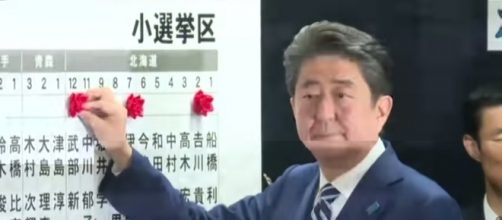Prime Minister Shinzo Abe of Japan won the parliamentary elections on Monday. Mr. Abe’s Liberal Democratic Party and his allies had garnered the two-thirds majority of the seats in the Parliament’s lower house.
Mr. Abe called the recent election in the light of North Korea’s threats, which he said to be the “country’s biggest problem.” Winning the snap election will revitalize the Prime Minister’s mandate to address the national crisis.
The Japanese government warned its citizens on August after the capital Pyongyang launched their provocative nuclear program and ballistic missiles which had flown over the northern part of Japan.
The missile flew over the island of Hokkaido and landed in the Pacific Ocean. The reckless launch of the missile of North Korea was considered by Mr. Abe to be “unprecedented, serious and grave threat.”
The victorious leader guaranteed to work closely with United States, China, and Russia in containing the nuclear threats of the North Korea. Mr. Abe and the United States share the same strategy in resolving the nuclear tension, through “strong, resolute diplomacy.” He said further said that dealing with North Korea is his "imminent task."
Dramatic counter-measures
President Donald Trump of the United States is expected to visit Japan on November 5 to reaffirm allegiance with leaders. Mr. Abe said that he will discuss counter-measures against North Korea’s threat to the U.S President along with other prominent leaders of Russia and China.
In a press conference in Tokyo on Monday, Mr. Abe said that his victory was a “vote of confidence.” He said that Japan will put on “stronger pressure’ to North Korea. He reassured the citizens of Japan with their safety and protection.
Revision of U.S-imposed constitution
Mr. Abe’s retention of two-thirds of his coalition will enable him to propose revisions in the US-imposed constitution of renouncing war.
The said constitution states that “land, sea, and air forces, as well as other war potentials, will never be maintained. The right of belligerency of the state will not be recognized.” Therefore, the military is limited to exercise the role of self-defense only.
Mr. Abe said on Sunday that he hoped to merit the favorable consideration of the public in his revision of the constitution which is deemed to be divisive as of the moment. A public vote in a referendum is imperative when both houses approve the amendment.


